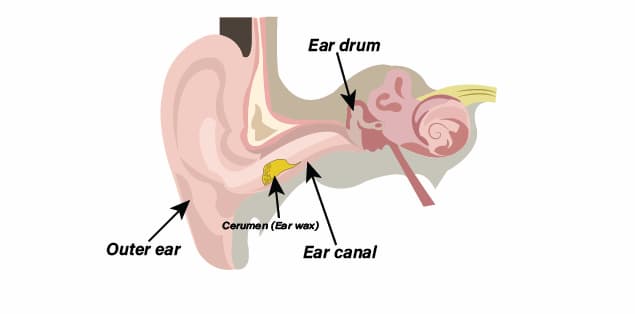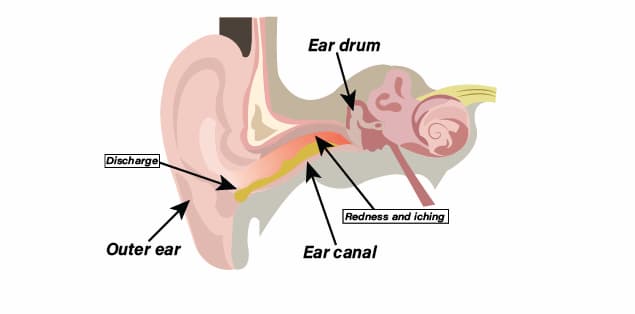We live in an age where technological advancements have completely overtaken our world. No wonder we now want to solve our various sleep-related issues also with the help of technological inventions. It is common knowledge that relaxing music promotes a good night’s sleep. But is it safe to sleep with AirPods?
It is easier than ever to take advantage of the power of music wherever you are going and whatever you are doing, owing to the availability of various gadgets and devices in this technocratic era. So why should an activity like sleep be devoid of technological footprint and the various benefits it can bring to the world of insomniacs out there? Studies have proven that listening to music while falling asleep can be used as an alternative treatment for people with insomnia and PTSD.
Whether you are one of those insomniacs or just want to enhance the quality of sleep hygiene, you may be considering using AirPods. But before you do that, we want to give an in-depth analysis that will help you decide whether it is safe to sleep with AirPods. So, here is the question is it safe to sleep with AirPods? Let’s find out!
Is it Bad to Sleep With AirPods?
Sleeping with AirPods can be safe when done properly. Whether you’re listening to music, white noise, rain noises, or even an extremely boring podcast, they can help you fall asleep faster. Even though sleeping is not one of the things to do while listening to a podcast, you can try. Some people swear by sleeping with AirPods as a fail-safe means of falling asleep quickly.
Sleeping with wireless in-ear headphones such as the AirPods Pro is safer than sleeping with wired earphones. Entangling of wires around your neck can be extremely dangerous. Therefore, it’s important to know how to sleep with headphones or earbuds before you try.
We’re not going to make this decision for you; wearing AirPods while sleeping is neither “good” nor “bad.” However, it’s worth considering the “Bad” aspects of using AirPods at night. This habit does come with some hazards, no matter how minor, and we want you to be well-informed about a product and its risks before inserting it in your ear to help you sleep. So, what are these potential dangers and side effects? Let’s find out.
What Are the Potential Dangers of Sleeping With AirPods?
Ear Wax Buildup

If you wear AirPods that rest a bit deeper in your ear, you run the danger of ear wax build-up. Long-term use of AirPods can prevent earwax from leaking out naturally. If you sleep for 7 to 9 hours a night, the earbuds can clog your ear canal and cause other problems such as infection, ear pain, and hearing loss. If you use AirPods every night, clean your ears regularly to remove excess wax and be careful as the ears are very sensitive.
Otitis Externa

Otitis Externa is a bacterial infection of the ear canal. Hearing loss, earache, and a feeling of fullness in the ear are all symptoms. Otitis Externa comes with an increased risk of the skin around your ear canal gradually deteriorating in the worst-case scenario, allowing fluid to enter the ear. This will cause pain in the outer ear as well.
The ear canal connects the outer ear to the eardrum; hence, it’s crucial. This illness is more frequent among swimmers, but it can also affect people who wear headphones and earbuds all of the time. Clean your AirPods on a regular basis by carefully removing the wax from the earphones. Clean dirt and microorganisms by rubbing alcohol on them.
Necrosis
Your AirPods can put extra pressure on the skin inside your ear canal if they don’t fit you properly. As a result, the skin begins to deteriorate, and necrosis (tissue death) may occur. It’s very important to select ones that fit you properly.
Hearing loss
The overexposure to sound in the auditory canal can cause hearing problems, especially if you listen to music too loudly. Severe ear infections can also lead to hearing loss in some extreme cases.
Disturbed Sleep
If there is a constant sound in the ear regardless of the volume, it can disrupt sleep. You can sleep soundly, but you won’t be able to reach the deep, relaxed state required for your body to fully recuperate. In the morning, this may cause drowsiness and weariness.
Compromised Safety
Using AirPods while sleeping can block important sounds based on volume. This could prevent you from hearing a knock on the door, a fire alarm, or a phone call. This can have catastrophic results, especially during emergencies. Instead, try sleeping with just one in.
Easy to Lose
It is not that easy for AirPods to fall off most of the time. But they still fall off as people toss and roll in the bed. If you turn over at night, an Airpod can fall off and get lost under the blankets, on the floor, or in a place you can’t get back. It’s not like people sleep with the Airpods glued to the ears or something. AirPods falling out in sleep is normal.
Therefore, if you’re a restless sleeper, someone who often switches from their left to right side in the bed, it can happen that the AirPods have a tendency to fall out eventually. Some people are worried about losing their AirPods when this happens.
Damage by Sweat and Water
Airpods are not waterproof. Even though the AirPods Third Generation, AirPods Pro, and the MagSafe Charging Case for AirPods Third Generation are water resistant, they may end up with permanent damage from sweat or water as they are not waterproof. For example, if you have dropped AirPods in water, there’s a high chance they’ll stop working.
If you’re someone who sweats a lot while sleeping, or even if you’re thinking about using Airpods to sleep in the summer, keep in mind that they’re not waterproof, and an excessive amount of perspiration, or moisture, could cause damage or total failure.
Physical Discomfort
If you’re a side sleeper, Airpod buds will be facing the pillow, putting pressure on our ears to keep them in place. It may not appear to be a lot of strain at first, but it does add up. Many people wake up in the middle of the night due to feeling discomfort in their ears.
Even the best headphones for sleeping can cause discomfort if not used correctly.
If you really want to keep your ears blocked while sleeping, you can check some of the best earplugs for concert as they’re more comfortable.
Are There Any Benefits of Sleeping With AirPods?
As we see, there are several risks involved with wearing earbuds while sleeping. Nevertheless, there are some advantages, too. Here are some benefits of wearing Apple AirPods while sleeping.
Relaxation

Most of us love listening to music, and for a good reason. Listening to things you like to hear encourages the production of “happy chemicals” serotonin and dopamine in our brains . If you go to bed in a bad mood, pleasant music can cheer you up. Studies have also shown that listening to the right music before bed creates a relaxation response, leading to a faster, longer, and less disrupted night’s sleep.
Respite From External Disturbances

Earbuds can be a great method to block out noise while sleeping. Even if you aren’t listening to music, both AirPods can be used as earplugs. Loud and unpleasant noises such as traffic, building work, neighbors playing loud music or a noisy roommate can be blocked out by playing music or utilizing a white noise app.
Long-Lasting Battery Life
The battery of AirPods lasts for approximately five hours after a full charge. Plenty of time to relax and allow yourself to fall into a deep, comfortable sleep. After having a good night’s rest, charge them again.
How to Sleep With AirPods?
There are other practices that you can implement in order to be able to sleep even better while having Airpods.
Maintain Proper AirPod Hygiene

Clean your AirPods regularly to avoid infections by wiping them gently with a moist towel first, then a lint-free dry towel. You can also use a cotton swab dipped in alcohol to disinfect them. If you know how to clean headphones and earbuds, you can follow similar steps to clean your AirPods.
Avoid Loud Music
Always listen to soothing and peaceful music and avoid loud and fast music while sleeping. Keep the volume level low. Choose music with a 60-80 bpm pace to mirror the heart rate of a healthy, relaxed person. You can try ASMR or white noises if you don’t want to listen to music at all.
Also, we get many queries with parents wanting to know if AirPods are safe for kids. The answer is yes but not for sleeping.
Choose the Perfect Size

Standard AirPods are the same size across the board, but their various mimics and earbud competitors all vary in size from each other. The AirPods Pro comes with three interchangeable rubber tips of varying sizes. In fact, the Apple AirPods Pro are the best earbuds for small ears. One that’s just the correct size will provide rich sound and excellent noise cancellation, but one that’s too big or little may fall out or create some of the infection-related issues we discussed earlier.
Use the different tips included with your AirPods Pro purchase to find the optimal fit. After all, everyone’s ears are different, and choosing an earbud tip that fits your ear is important to increase the overall comfort level.
Take Regular Breaks
Taking regular breaks from the music you’re listening to is a smart idea. These short breaks can happen anywhere throughout your listening session, from 30 minutes to 2 hours.
Keep AirPods in a Case
To avoid infections, keep your AirPods in a ventilated case to avoid moisture and bacterial buildup, thus preventing infections.
Use a Memory Foam Pillow

As the name implies, when you apply a specific amount of pressure to these pillows, they will restore their shape rather than flattening out like other pillows. They also mold to the contour of your head and neck, which is wonderful because it means they won’t put as much pressure on the AirPods, perhaps damaging the inside of your ear if you sleep on your side.
Keep AirPods From Falling Out While Sleeping
Wireless headphones can be worn in a variety of ways to avoid them from falling out while sleeping, but they must be adjusted slightly to avoid slipping out. The best way to wear your AirPods while sleeping is by twisting them upwards by roughly 30 degrees, this brings the base of the AirPods in a horizontal position. Your AirPods are now slightly sticking outward away from your ears.
In our experience, 90% of the time, the AirPods will fall out of your ears overnight. Moreover, some AirPods user not only lose their AirPods while sleeping but they also lose the AirPods case. This does not need to be an issue. Usually, they are easy to locate and will be on or next to your pillow. On rare occasions, you will find them on the floor or under your bedsheets. So, that is not something to fret about.
Final Words
We hope that this article has put to bed all your anxieties when it comes to sleeping with your AirPods. It’s doubtful that wearing AirPods to bed will actually hamper your overall health, but there are plenty of ways to at least minimize the negative impact.
At this point, you should be able to answer this question quite easily. If you do choose to sleep with your AirPods in, you’ll be alright, as long as you evaluate the hazards, keep them clean, and routinely check your ears for signs that you should stop sleeping with them.





